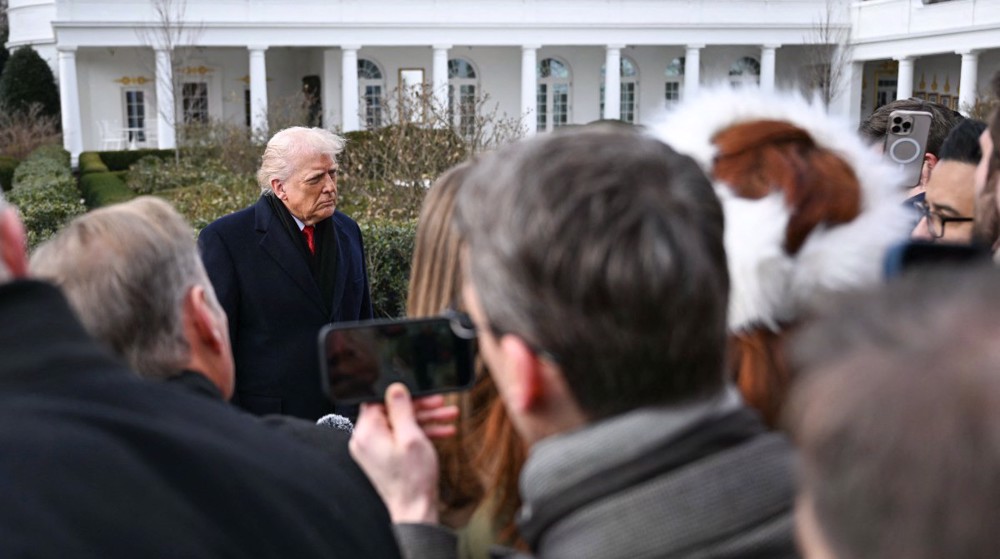‘Blair apology manipulation tactic’
Reactions are emerging toward an expression of apology by the former British prime minister Tony Blair for taking Britain to war in Iraq back in 2003. Critics say they are unimpressed with Blair’s apology, stressing that they see it as a typical defense tactic which has been carefully designed to divert the public opinion and avoid culpability.
“He’s doing what he is master at which is spin control,” said Ian Williams, the senior analyst of Foreign Policy in Focus, on Sunday.
“He’s trying to shape the discussions and the agenda. So what he did is going to be transformed from a crime to a mistake,” he told Press TV.
Blair in an interview with the CNN said he was sorry for "mistakes" made in the US-led invasion of Iraq in 2003.
"I can say that I apologize for the fact that the intelligence we received was wrong because, even though he had used chemical weapons extensively against his own people, against others, the program in the form that we thought it was did not exist in the way that we thought," Blair said in an exclusive interview on CNN's Fareed Zakaria GPS.
Williams told Press TV that Blair is using a tactic that will eventually make people forget the blame on Blair to cause significant sufferings to the British nation.
“People are forgiving your mistakes, generally speaking,” he told Press TV’s UK Desk in an exclusive interview.
“By saying that what he did was based on mistaken intelligence, what he is doing is diverting the fact that he deliberately distorted the intelligence reports to make it mistaken,” he said.
“The whole thing is about him avoiding culpability for his part in what even he now has to admit was an unmitigated disaster.”
Other critics believe that Blair only delivered a half apology, stressing nonetheless that his case will be a lesson to learn for the British politicians over any potential future decisions regarding the Middle East developments.
“This is only a half apology and not a full apology that the people of Iraq and Britain actually deserve,” Nigel Flanagan, a Switzerland-based political commentator, told Press TV.
Flanagan added that Blair would not have bothered to apologize had it not been for the Chilcot report.
He said the former British premier had used a tactic in this to prevent future criticisms against him once the outcomes of the Chilcot report are publicized.
“I think he’s simply trying to preempt the criticism and condemnation that is going to come his way at the conclusion of the inquiry,” Flanagan told Press TV’s UK Desk.
He further expressed hope that Blair’s case would prevent British politicians from manipulating the public opinion.
“It could give some current politicians some kind of pausing in the actions that they are proposing for Syria and the Middle East,” Flanagan said.
“If Prime Minister Cameron is watching this closely, he will see that the grass roots opposition to airstrikes and invasion of Iraq eventually did press up [Blair] … into the position that [he was] found more or less guilty of deceiving the British public.”
US military industry is major driver of global environmental destruction: IRGC deputy chief
Yemen’s Ansarullah warns of US, Israel soft war on West Asia nations
‘Decaying empires turn to savage control previously used abroad at home’
VIDEO | Myanmar votes in last and third phase of military-run election
Iranian pharmaceutical industry flourishing
Netizens react with outrage to another ICE murder in Minneapolis
VIDEO | Iran’s Emergency Medical Services suffered $2.14m in damage during unrest: Director
Discover Iran: Hormozgan’s coastal villages blend sea, culture and community tourism










 This makes it easy to access the Press TV website
This makes it easy to access the Press TV website